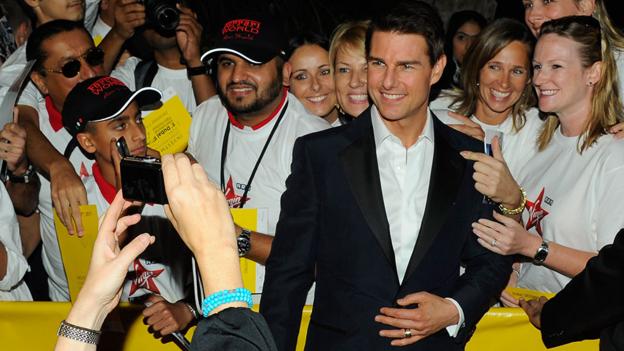 |
| Steve Rosenberg reports from the protest camps. |
Top Western diplomats are
arriving in Kiev as police move to break the blockade of Ukrainian
government buildings by pro-EU protesters.
US Deputy Secretary of State Victoria Nuland met leading
opposition politicians and was due to have talks with President Viktor
Yanukovych.
EU foreign policy chief Catherine Ashton is also due in the city.
Mr Yanukovych has reportedly indicated he may be willing to help free people arrested during the protests.
One of his predecessors as president of Ukraine, Leonid
Kravchuk, made the remark after talks with Mr Yanukovych and two other
former presidents, Leonid Kuchma and Viktor Yushchenko.
Scores of people were injured and at least 31 arrests were
made in clashes between police and protesters at the end of last month..
Several people were also hurt overnight as riot police advanced, before a deadline for protesters to lift their blockade.
 |
| Ms Nuland met Ukrainian opposition politicians (from left) Oleh Tyahnybok, Arseniy Yatsenyuk and Vitaly Klitschko. |
 |
| Riot police are guarding government buildings in Kiev to keep away demonstrators. |
 |
| Protesters remain camped out in the snow, warming themselves around wood fires. |
But no action was taken against the main opposition camp on
Independence Square, where about 2,000 protesters remained on Tuesday
morning, huddling around braziers to keep warm, Reuters news agency
reports.
On Sunday, at least 100,000 protesters turned out, demanding the resignation of the government within 48 hours.
The political crisis began when Ukraine decided not to sign a
landmark EU free-trade deal last month, while under pressure to
strengthen economic ties with Russia.
The European Commission says the EU's offer of an association
agreement with Ukraine remains on the table, provided Ukraine meets the
conditions, which cannot be renegotiated.
'Serious risk'
A police raid on Monday on the headquarters of Ukraine's
biggest opposition party, Fatherland, led Baroness Ashton to express
concern and urge restraint on the eve of her visit.
Computer servers were removed during the raid on the party
led by former Prime Minister Yulia Tymoshenko, who has been in prison
since 2011 over a controversial gas contract with Russia.
"I follow with concern the reports that police forces
forcibly entered the office of the biggest opposition party," Baroness
Ashton said in a statement.
She said the timing, just ahead of the talks proposed by Mr Yanukovych, "seriously risk to derail the process".
 |
| At least some people were hurt in scuffles with police overnight. |
 |
| The protesters have vowed to defend Independence Square, the focal point of the demonstrations |
Photos were released on Tuesday of Ms Nuland meeting Vitaly
Klitschko, the heavyweight boxing champion who leads the Udar (Punch)
party, as well as Arseniy Yatsenyuk, of Tymoshenko's
Fatherland party,
and Oleh Tyahnybok, of the far-right Svoboda party.
In Moscow earlier, the US diplomat expressed "deep concern"
about events in Ukraine, stressing
Washington's support for Ukrainians'
"European choice".
She "urged Russia to use its influence to press for peace,
human dignity and a political solution", the
US embassy in Moscow said
in a statement.
Scuffles
After talks with Mr Yanukovych, Mr Kravchuk
said the current president would decide whether arrested demonstrators
should be freed "while not intervening in the work of the courts".
The street protests, the biggest since 2004, have invited
parallels with that time. On each of the last three Sundays, crowds
estimated at 100,000 or more have flooded central Kiev.
On Monday, phalanxes of riot police, their helmets caked in
snow, moved to clear Kiev's government district of protesters, tearing
down barricades leading to the presidency, cabinet offices and
parliament.
Scuffles broke out and, while there were no immediate
official reports of injuries, members of Svoboda said several people had
been hurt. Two police officers were also reportedly injured.
The unrest in Kiev and other parts of Ukraine escalated after police used violence against protesters on 30 November.
The crisis has highlighted divisions in Ukraine, with many in
the east of the country more sympathetic to Russia, and opposing both
closer links with the EU and the anti-government protests.



















































Are you in India? What is your reaction to the Supreme Court's ruling? Please send us your comments using the form below.